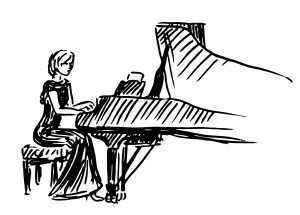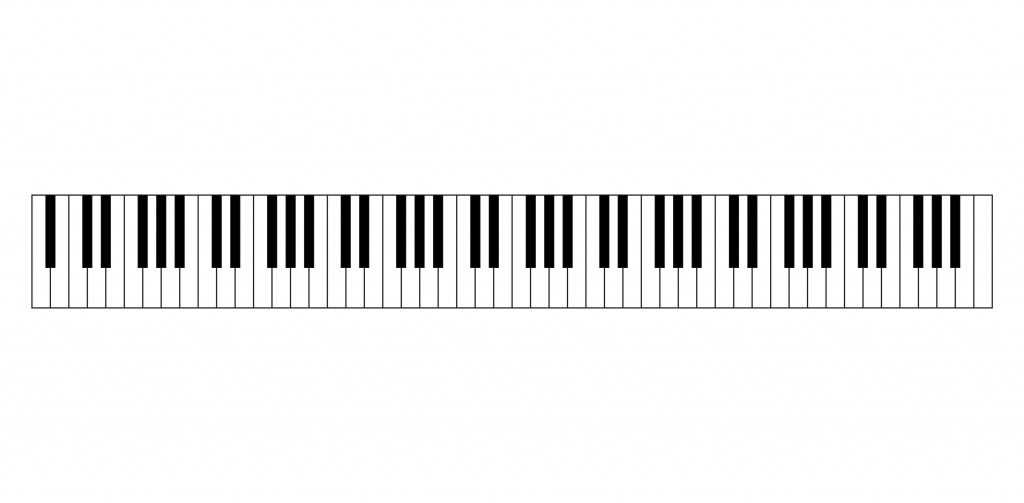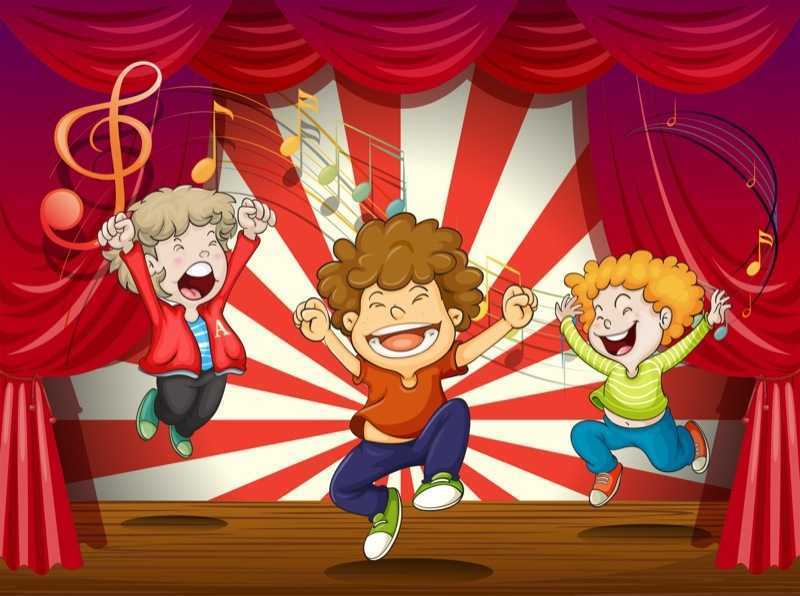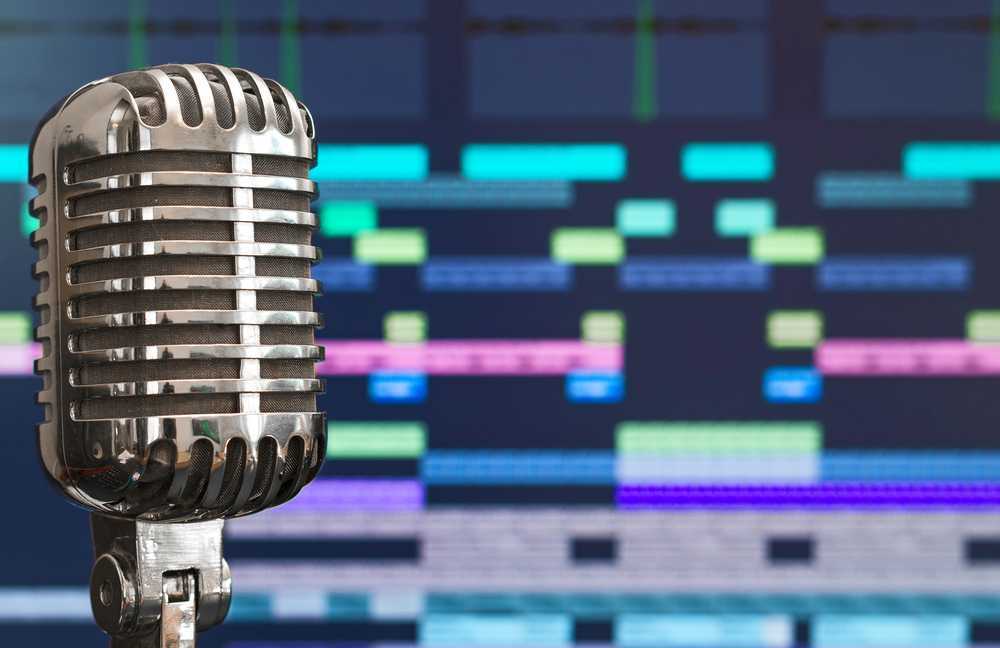Though we might take it for granted now, the invention of the piano dramatically altered the musical landscape back in 1700, and music has never been the same since. The piano is an instrument that can be found in music composed by everyone from famous pop songwriters to obscure art and classical music composers and every type of musician in between. The piano shows up in virtually every type of music all over the planet. It has become a permanent fixture in music because of its incredible power and versatility. The benefits of learning piano include more than just learning how to play an amazing instrument for a wide range of people.
The piano was invented early in the 18th century by the instrument maker Bartolomeo Cristofori.
This was a time in history when art and music was starting to better reflect the human condition, and Cristofori wanted to create a powerful instrument that could be played both loudly and softly. Cristofori built his first piano by adapting a harpsichord, an instrument lacking dynamics of any sort because it plucks strings to create pitches. The piano was so revolutionary because it was built using a system of small hammers that struck the strings, which gave the player say over how loud or soft the music was played. The piano gave musicians and composers a plethora of new, exciting options, and its arrival in the 18th century marked a revolution in music and culture.
The piano is an astounding instrument, and people of every background and interest stand to gain a lot by learning how to play it. So, without further ado, here are 10 Benefits of Learning Piano:
1. The Piano Is a Gateway to All Music
When a composer sits down to create a new piece of music, they’ll most likely begin their creative work by tinkering around on the piano. The piano has everything a composer and songwriter could want: a massive range, nuanced dynamic options, straightforward performance, and a gorgeous tone. Countless musicians began their careers in music by experimenting with their family piano as children, and this open experimentation is credited to just how intuitive an instrument like the piano is. Practically any song or piece of music with a melody and chord progression can be condensed and adapted to be played on the piano, no matter how large or complicated the arrangement. The piano is an instrument suitable for players of every skill level and background. The benefits of learning piano will come quickly and relatively easily for players of all skill levels and backgrounds.
2. It’s Easy to Play
 Unlike other instruments, the piano is incredibly easy to learn. The benefits of learning piano include quick and painless playability of the instrument. When a beginner student learns an instrument like the trumpet or guitar, there’s a huge learning curve in the first few months of lessons that can be very difficult to cope with. Mastering the embouchure (the use of facial muscles and the shaping of the lips to the mouthpiece of woodwind instruments or the mouthpiece of the brass instruments) or learning how to build calluses on fingers for playing guitar are processes that are mastered only after months of hard work and practice. A benefit of learning how to play piano is that the operation is simple: when a key is pressed down, it produces a sound. Piano is an ideal instrument for a child to learn because it’s so intuitive. Within minutes, a young child can sit down at the piano and learn to play something. The piano is also instantly expressive, allowing players of every skill level and experience to play softly or loudly with ease. There are few instruments more welcoming and easy to play for beginners than the piano.
Unlike other instruments, the piano is incredibly easy to learn. The benefits of learning piano include quick and painless playability of the instrument. When a beginner student learns an instrument like the trumpet or guitar, there’s a huge learning curve in the first few months of lessons that can be very difficult to cope with. Mastering the embouchure (the use of facial muscles and the shaping of the lips to the mouthpiece of woodwind instruments or the mouthpiece of the brass instruments) or learning how to build calluses on fingers for playing guitar are processes that are mastered only after months of hard work and practice. A benefit of learning how to play piano is that the operation is simple: when a key is pressed down, it produces a sound. Piano is an ideal instrument for a child to learn because it’s so intuitive. Within minutes, a young child can sit down at the piano and learn to play something. The piano is also instantly expressive, allowing players of every skill level and experience to play softly or loudly with ease. There are few instruments more welcoming and easy to play for beginners than the piano.
3. Learning How to Play The Piano Makes Understanding Music Theory Easy
The benefits of learning piano include a focused and easy way to understand music theory. When a student begins to learn complex music theory concepts, they usually start by taking a look at the piano. Music theory is basically visualized as the black and white keys on a keyboard. Learning how to build and understand chords, scales, and intervals is significantly easier to do on a keyboard than it is to do on other instruments like the guitar or clarinet. Students learning other instruments face the challenge of learning about music theory concepts in a process that’s separate from their instrument because they’ll have to get familiar with the keyboard, but piano students become familiar with the keyboard during their very first lesson. When a piano student learns how to play their first scale or chord, they are essentially learning how to understand music theory. Even the most skilled musicians lack critical skills and understanding in music if they can’t grasp how music theory works, so when becoming familiar with music the keyboard is a must.
4. Playing the Piano Helps Improve Cognitive Skills
Recent scientific studies have shown that learning to play the piano gives students some surprising cognitive benefits. According to an article recently published by ScienceNutshell.com, “In 2013, a team of researchers at the Institut d’Investigacions Biomèdiques August Pi i Sunyer, Barcelona, Spain studied the brains of elderly test subjects before and after months of piano lessons. When compared to another group who’d received training in leisure activities such as sport and painting etc, the piano players showed much more notable improvement on STROOP as well as other neuropsychological tests, suggesting learning to play and read music can be a useful intervention in older adults to promote cognitive reserve.” The inherent challenge of learning to play and read music for piano helps keep the brain sharp and focused for not just elderly people, but also young, developing brains. The skills and concepts children learn when they’re young will benefit them for a lifetime, so every piano student stands to gain in huge ways even if they don’t go on to become concert pianists. The benefits of learning piano are proven to improve lives.
5. Learning the Piano Helps Relieve Stress and Treats Depression
Some of the most beautiful, poignant pieces of music ever created have been written for the piano, but the piano does more than just sound amazing and reflect human emotion. Science has recently revealed that learning how to play the piano is a process so powerfully beneficial that it can actually treat depression and alleviate stress according to a 2013 article published by the National Library of Medicine. “In our study, piano lessons decreased depression, induced positive mood states, and improved the psychological and physical QOL of the elderly. Our results suggest that playing piano and learning to read music can be a useful intervention in older adults to promote cognitive reserve (CR) and improve subjective well-being.” Playing piano is an easy, drug-free way to improve mood and well-being. The process of reading music for piano can greatly benefit everyone from young children to elderly adults coping with stress and depression. Benefits of learning piano include holistic treatments for mood disorders.
6. Playing the Piano Improves Dexterity, Hand Independence, and Muscle Memory
The benefits of learning piano help to develop connections from a person’s hand muscles to their brain that would otherwise not  be there. A person who plays piano regularly is proven to have hands that are stronger, more flexible, and more independent than the hands of non-musicians. This is credited to the fact that pianists do things with their hands that an average person never does throughout the course of their day. A great deal of hand strength and flexibility is required to be able to play scales, chord shapes, and melodies. Virtually all music for piano demands completely separate and independent actions from the left and right hands. This promotes an ambidextrous quality in piano players that few other people have. In piano, the left hand typically plays bass parts and low chords while the right hand mainly focuses on lines of melody. The independence between right and left hands a pianist develops comes after months of focused, detailed practicing. This positive ambidextrous quality can be useful in activities outside of music such as sports, dancing, and physical fitness.
be there. A person who plays piano regularly is proven to have hands that are stronger, more flexible, and more independent than the hands of non-musicians. This is credited to the fact that pianists do things with their hands that an average person never does throughout the course of their day. A great deal of hand strength and flexibility is required to be able to play scales, chord shapes, and melodies. Virtually all music for piano demands completely separate and independent actions from the left and right hands. This promotes an ambidextrous quality in piano players that few other people have. In piano, the left hand typically plays bass parts and low chords while the right hand mainly focuses on lines of melody. The independence between right and left hands a pianist develops comes after months of focused, detailed practicing. This positive ambidextrous quality can be useful in activities outside of music such as sports, dancing, and physical fitness.
7. Piano-Playing Promotes Better Performance in School
If you’re the parent of a child struggling to stay focused in school, you might want to consider enrolling them in piano lessons. Multiple scientific studies have proven that  playing instruments like the piano can improve a child’s ability to listen, focus, and learn in and out of school. According to recent studies quoted by the National Association for Music Education, “Scientific American’s (2010) board of editors asserted, ‘Studies have shown that assiduous instrument training from an early age can help the brain to process sounds better, making it easier to stay focused when absorbing other subjects, from literature to tensor calculus,’” and, “Music training in childhood fundamentally alters the nervous system such that neural changes persist in adulthood after auditory training has ceased.” Piano lessons have the ability to permanently alter a child’s brain chemistry to be better suited for learning for a lifetime. Introducing your children to piano lessons early on fosters a positive environment for learning in and outside the brain. The musical foundation parents give their children has an unrivaled ability to promote curiosity, learning, and personal growth in and outside school. If you’re looking for a way to help challenge and nurture your child intellectually, look no further than piano lessons. The benefits of learning piano include measures to increase confidence and follow-through in a person.
playing instruments like the piano can improve a child’s ability to listen, focus, and learn in and out of school. According to recent studies quoted by the National Association for Music Education, “Scientific American’s (2010) board of editors asserted, ‘Studies have shown that assiduous instrument training from an early age can help the brain to process sounds better, making it easier to stay focused when absorbing other subjects, from literature to tensor calculus,’” and, “Music training in childhood fundamentally alters the nervous system such that neural changes persist in adulthood after auditory training has ceased.” Piano lessons have the ability to permanently alter a child’s brain chemistry to be better suited for learning for a lifetime. Introducing your children to piano lessons early on fosters a positive environment for learning in and outside the brain. The musical foundation parents give their children has an unrivaled ability to promote curiosity, learning, and personal growth in and outside school. If you’re looking for a way to help challenge and nurture your child intellectually, look no further than piano lessons. The benefits of learning piano include measures to increase confidence and follow-through in a person.
8. Learning to Play Piano Helps Students Finish Projects
Piano lessons help students of any age finish projects, because instructors provide an accountability that might otherwise be difficult to find. The feeling of completing a tough scale or difficult piece of music is a great one, and that sense of accomplishment through hard work can carry over into the daily lives of piano students. Being a successful piano student demands time, effort, and follow-through, and these are qualities that can help a person do well in their careers, education, and relationships. Learning how to play the piano develops tenacity, patience, and perseverance in a person.
9. Piano Lessons Help Promote Vulnerability and Openness in Adults
Many adults often struggle with not being as open and vulnerable as they should be with their spouses and children. The day-to-day grind has a way of making a person feel like they’ve heard it all before, and the minutiae of the daily routine has a way of closing a person up. Learning how to play an instrument like the piano demands a unique vulnerability in adult students. It forces an otherwise competent person to enter a realm in which they know and can do very little. Many adults could benefit from a process in which they agree to be humbled in order to learn something amazing. The benefits of learning piano can not only reveal the hidden beauty all around us, but can also bring out the talent and beauty in ourselves. I’ve taught adult piano students for years, and I’m always surprised how childlike and joyful a seemingly tough and successful person becomes in the context of our lessons. An instrument like the piano has the uncanny ability to bring pure joy and wonder out of a person.
10. Playing the Piano Adds Beauty To Your Life
 Music written for piano has the ability to bring out powerful emotions in a person. We’ve all had the experience of walking into a room that’s haunted by a person playing something gorgeous or devastating on the piano. The instrument was designed to reflect human emotion and feeling, so it’s no wonder that the piano is more relevant and prominent in 2016, more than three centuries after its invention. Piano music can deliver genuine beauty and delight to a person, and these things are often in short supply for someone weighed down by the stresses of work and family commitments.
Music written for piano has the ability to bring out powerful emotions in a person. We’ve all had the experience of walking into a room that’s haunted by a person playing something gorgeous or devastating on the piano. The instrument was designed to reflect human emotion and feeling, so it’s no wonder that the piano is more relevant and prominent in 2016, more than three centuries after its invention. Piano music can deliver genuine beauty and delight to a person, and these things are often in short supply for someone weighed down by the stresses of work and family commitments.
The benefits of learning piano are powerful and numerous, but you’ll need an experienced, thoughtful instructor to help show you how to get started. A good piano teacher will help show you how to learn and understand everything you need to know about playing the piano. They’ll give you simple warm-ups and scales to help get your hands used to playing. When looking for a piano instructor, it’s important to consider things like years of playing experience, demeanor, and personality. There are many piano teachers out there, so make sure to find the right one for you and your needs. With the right instructor and positive attitude, there’s no limit to what you can achieve in music.










My sister is looking for ways to get her kids off the couch and doing some kind of hobby, so I’ll have to share this with her. I like how you point out that learning to play the piano helps kids improve their cognitive skills. I imagine that that will help them do better in school as well!
I like how you said that piano lessons for adults are a way of helping to humble adults and helping realize that there is more in the world that they don't understand. My husband is starting to feel old and worn down because of his busy schedule. Maybe I'll have to see if he would be interested in learning the piano so he can break out of the mold and have a bit more fun every day.
I have had a sroke which has left me with some cognitive deficits. I have been doing things to help such as learning a language, learning tai-chi and meditation.Learning the piano looks like another great option.
I am thinking of signing my daughter up to take piano lessons and I am glad that I found this article because I was not aware that there are so many important benefits! You make a great point that learning the piano will help my daughter to understand music theory and will provide a base for any instruments that she might want to learn in the future. Also, the fact that playing the piano will help her to relieve stress is a huge benefit because school often stresses her out, so coming home and playing the piano will help her relax.
I just like the helpful information you provide to your articles.
I'll bookmark your blog and take a look at once more here frequently.
I am quite sure I will learn many new stuff proper here!
Best of luck for the following!
I've always been fascinated with learning to play the piano when I was young since I always enjoyed listening to it. It's interesting to know that the piano is easy to learn, so I might try looking for some lessons to start with. I believe that it's not yet too late for me to start because I'm still not that old, and I want to try out learning how to compose my own music as well.